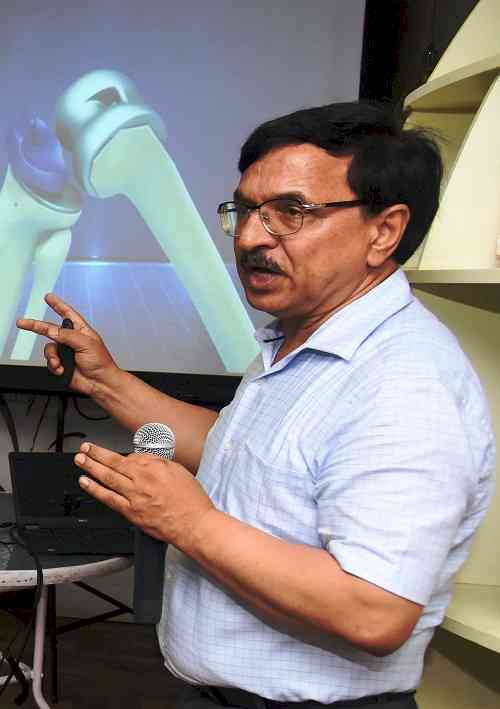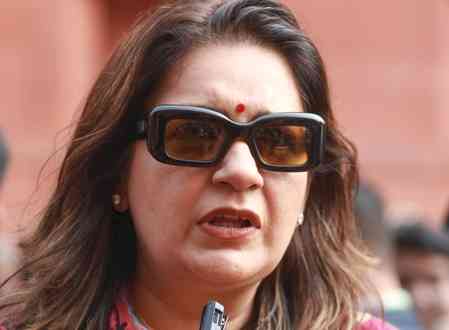Max Hospital, Mohali successfully performs complex robotic hip replacement surgery
Doctors at Max Super Speciality Hospital, Mohali have successfully performed a complex Robotic-Assisted Total Hip Replacement Surgery on a 77-year-old woman suffering from Advanced Osteoarthritis (OA) of the right hip joint. Using advanced robotic technology, the surgical team led by Dr. Ramesh Sen, Principal Director and Head of Orthopaedics, Max Super Speciality Hospital, Mohali was able to perform the procedure with exceptional precision.

Mohali: Doctors at Max Super Speciality Hospital, Mohali have successfully performed a complex Robotic-Assisted Total Hip Replacement Surgery on a 77-year-old woman suffering from Advanced Osteoarthritis (OA) of the right hip joint. Using advanced robotic technology, the surgical team led by Dr. Ramesh Sen, Principal Director and Head of Orthopaedics, Max Super Speciality Hospital, Mohali was able to perform the procedure with exceptional precision.
The patient was brought to Max Hospital with pain in the right hip, early morning stiffness, and progressively worsening difficulty in walking—symptoms that had persisted for over six months and did not improve with medication. Upon further evaluation, she was diagnosed with degenerative arthritis of the right hip. The patient also had other comorbidities, including hypertension and hypothyroidism, and a history of bilateral total knee replacement in 2024, at another healthcare setup, making this case complex to perform any procedure.
Speaking on the case Dr. Ramesh Sen said, “Given her age and pre-existing conditions like hypertension and hypothyroidism, along with a history of bilateral total knee replacement, the case was clinically complex. Robotic-assisted hip replacement allowed us to tailor the surgery with high precision, minimize soft tissue trauma, and ensure optimal alignment of the implant. This robotic surgery brings a level of personalization and precision that is unmatched by conventional techniques, especially in elderly patients with complex cases. it helps improve long-term outcomes and accelerates recovery.”
Dr. Sen further added, “The surgery was conducted in 2 hours and post observation, the patient was shifted out of the ICU within 48 hours and discharged in stable condition on 1st June. Her recovery has been encouraging, and with a structured 3-month rehabilitation plan, we expect her to gradually regain independence in daily life, with the possibility of long-distance mobility and even start to travel in the near future.”
Post-discharge, the patient is currently undergoing partial weight-bearing physiotherapy using a walker and can manage basic daily tasks with some assistance. She has been advised to avoid squatting, sitting cross-legged, using Indian toilets, and walking without support for now, while continuing ice pack therapy and supported walking.



 City Air News
City Air News 










